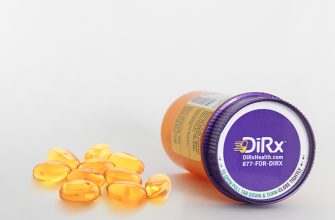Doxycycline 100 mg capsules are a common antibiotic prescribed for various bacterial infections. Always follow your doctor’s instructions precisely regarding dosage and duration of treatment. Never adjust your dosage without consulting them first.
This medication is effective against a wide range of bacteria, including those responsible for respiratory infections, urinary tract infections, and certain sexually transmitted infections. However, it’s crucial to understand that doxycycline is not effective against all types of bacteria. Your doctor will determine if it’s the appropriate treatment for your specific condition.
Common side effects include nausea, vomiting, and diarrhea. More serious, though rare, side effects can include increased sun sensitivity and esophageal irritation. Inform your doctor immediately if you experience any unusual symptoms. Taking doxycycline with food can help minimize gastrointestinal upset. Remember to drink plenty of water while taking this medication.
Do not take doxycycline if you are pregnant, breastfeeding, or have known allergies to tetracycline antibiotics. Interactions with other medications are possible; always provide your doctor with a complete list of all medications, supplements, and herbal remedies you are currently taking. Proper storage is important to maintain the medication’s potency. Keep it in a cool, dry place, away from direct sunlight.
- Doxycycline Mono 100 mg Cap: A Detailed Overview
- Common Uses
- Important Considerations
- Potential Side Effects
- Dosage and Administration
- Drug Interactions
- Storage
- What is Doxycycline Mono 100 mg?
- Common Uses
- Important Considerations
- Potential Side Effects
- Medication Interactions
- Dosage Instructions
- Storage
- Disclaimer
- Common Uses and Indications
- Dosage and Administration Guidelines
- Specific Conditions and Dosage Adjustments
- Potential Side Effects and Precautions
- Drug Interactions: What to Avoid
- When to Seek Medical Attention
- Signs Requiring Immediate Medical Help
- Less Urgent, But Still Important
- Medication Interactions
- Storage and Disposal Instructions
- Frequently Asked Questions (FAQs)
- Dosage and Administration
- Contraindications and Precautions
- Other Concerns
- Storage
Doxycycline Mono 100 mg Cap: A Detailed Overview
Doxycycline Mono 100 mg capsules are a common antibiotic used to treat various bacterial infections. Always follow your doctor’s instructions for dosage and duration of treatment. Incorrect use can lead to antibiotic resistance.
Common Uses
- Acne vulgaris: Doxycycline is often prescribed for moderate to severe acne.
- Respiratory infections: It effectively targets bacterial pneumonia and bronchitis.
- Sexually transmitted infections: It’s frequently used to treat chlamydia and syphilis.
- Lyme disease: Doxycycline is a first-line treatment for early-stage Lyme disease.
- Other infections: It can treat infections of the urinary tract, skin, and intestines.
Important Considerations
Before taking doxycycline, inform your doctor about any allergies, current medications, and medical conditions, including pregnancy or breastfeeding.
Potential Side Effects
- Gastrointestinal issues: Nausea, vomiting, diarrhea, and abdominal pain are possible.
- Sun sensitivity: Increased sensitivity to sunlight may occur. Use sunscreen and protective clothing.
- Yeast infections: Doxycycline can disrupt the balance of gut bacteria, increasing the risk of yeast infections.
- Tooth discoloration: This is a particular concern for children with developing teeth.
- Other effects: These can include headache, dizziness, and esophageal irritation. Contact your doctor if you experience any concerning side effects.
Dosage and Administration
Dosage varies depending on the infection being treated. Always follow your doctor’s prescription precisely. Usually, it’s taken with a full glass of water, and you should avoid lying down for at least 30 minutes after ingestion. Dairy products and antacids may interfere with absorption.
Drug Interactions
- Antacids: Avoid concurrent use with antacids containing calcium, magnesium, or aluminum.
- Warfarin: Doxycycline can enhance the effects of anticoagulants like warfarin.
- Birth control pills: Doxycycline can decrease the effectiveness of oral contraceptives.
This information is for educational purposes only and does not substitute professional medical advice. Always consult your doctor or pharmacist before starting any medication.
Storage
Store doxycycline capsules in a cool, dry place, away from direct sunlight and moisture. Keep out of reach of children.
What is Doxycycline Mono 100 mg?
Doxycycline Mono 100 mg is a tetracycline antibiotic. It combats bacterial infections by preventing bacteria from producing necessary proteins, thus halting their growth and reproduction.
Common Uses
- Treatment of acne vulgaris
- Treatment of bacterial infections like bronchitis, pneumonia, and chlamydia
- Prevention of malaria
- Treatment of Lyme disease (often used in combination with other antibiotics)
The 100 mg dosage is a common strength, though your doctor will determine the appropriate dose and duration based on your specific condition and health.
Important Considerations
Before taking Doxycycline Mono 100 mg, inform your doctor about any existing health conditions, allergies (especially to tetracyclines), and medications you are currently taking. This includes over-the-counter drugs and supplements.
Potential Side Effects
- Nausea
- Vomiting
- Diarrhea
- Sun Sensitivity
- Vaginal yeast infections
These are not all possible side effects. Consult your physician or pharmacist if you experience any adverse reactions. Always follow your doctor’s instructions carefully.
Medication Interactions
Doxycycline can interact with certain medications, including antacids, blood thinners, and some oral contraceptives. Discuss potential interactions with your doctor or pharmacist before starting treatment.
Dosage Instructions
Strictly adhere to the prescribed dosage and frequency, and complete the entire course even if symptoms improve. Do not stop taking the medication without consulting your physician.
Storage
Store Doxycycline Mono 100 mg capsules in a cool, dry place, away from direct sunlight and moisture. Keep out of reach of children.
Disclaimer
This information is for educational purposes only and should not be considered medical advice. Always consult your physician or pharmacist before starting or changing any medication.
Common Uses and Indications
Doxycycline monohydrate 100 mg capsules treat various bacterial infections. They effectively combat acne vulgaris, a common skin condition. This antibiotic also proves useful in treating infections of the respiratory tract, including pneumonia and bronchitis.
Doxycycline is a reliable choice for urinary tract infections and certain sexually transmitted infections like chlamydia and gonorrhea. It’s also prescribed for treating certain types of Lyme disease and other tick-borne illnesses.
Furthermore, doxycycline finds application in treating infections of the skin and soft tissues, such as cellulitis. It’s important to remember that this medication should only be taken as prescribed by a doctor. Always follow dosage instructions carefully and complete the full course of treatment, even if you feel better before the medication is finished, to prevent recurrence and antibiotic resistance.
While effective, doxycycline may cause side effects. These can include nausea, vomiting, diarrhea, and stomach upset. Serious side effects, though less common, include increased sun sensitivity, allergic reactions and esophageal irritation. Consult your doctor immediately if you experience severe side effects.
Dosage and Administration Guidelines
Always follow your doctor’s instructions precisely. Typical adult dosage for most infections is 100 mg twice daily. However, your physician may adjust this based on your specific condition and response to treatment.
Specific Conditions and Dosage Adjustments
For acne, a common dosage is 50-100 mg once or twice daily. Lyme disease may require 100 mg twice daily for up to 21 days. Doxycycline’s use in treating other infections varies significantly; consult your prescribing physician for precise instructions.
Take doxycycline with a full glass of water. Avoid taking it with dairy products, antacids, or iron supplements, as these can hinder absorption. Take it either one hour before or two hours after these substances.
Complete the entire course of medication prescribed, even if you feel better before the end. Stopping treatment early may lead to relapse or antibiotic resistance.
If you experience any adverse reactions such as nausea, vomiting, diarrhea, or stomach upset, contact your doctor immediately. Additionally, report any unusual sun sensitivity.
Potential Side Effects and Precautions
Doxycycline can cause nausea, vomiting, and diarrhea. Drink plenty of fluids to mitigate these effects. Severe diarrhea may indicate Clostridium difficile infection; contact your doctor immediately if this occurs.
Photosensitivity is a common side effect. Avoid prolonged sun exposure and use sunscreen with an SPF of 30 or higher. Wear protective clothing when outdoors.
Yeast infections are possible, particularly in women. Monitor for vaginal itching or discharge and contact your doctor if symptoms develop.
Doxycycline can affect tooth development in young children. Avoid using it in children under 8 years old unless explicitly prescribed by a doctor.
This medication may increase your risk of esophageal irritation. Take it with a full glass of water while sitting or standing upright. Avoid lying down for at least 30 minutes after taking the medication.
Important: Doxycycline can interact with other medications. Inform your doctor about all medications, supplements, and herbal remedies you are currently taking. This includes birth control pills; doxycycline can reduce their effectiveness.
Caution: This medication may cause dizziness. Avoid driving or operating machinery if you experience this side effect. Also, be mindful of potential interactions with antacids and dairy products, which can reduce absorption.
Always follow your doctor’s instructions carefully and report any unusual symptoms.
Drug Interactions: What to Avoid
Avoid taking doxycycline with dairy products, antacids containing calcium, magnesium, or aluminum, or iron supplements. These substances can reduce doxycycline absorption, lessening its effectiveness.
Simultaneous use of doxycycline and blood thinners like warfarin may increase bleeding risk. Close monitoring is needed if you’re on both medications.
Doxycycline can interact negatively with certain medications used to treat seizures, such as phenytoin and phenobarbital. Your doctor should be informed if you’re taking any anticonvulsants.
Be cautious when combining doxycycline with methotrexate. Doxycycline may increase the toxicity of methotrexate.
Some oral contraceptives may be less effective while taking doxycycline. Consider using a backup method of birth control.
The following table summarizes key interactions:
| Medication Type | Example Medications | Potential Interaction |
|---|---|---|
| Dairy Products & Antacids | Milk, yogurt, calcium-containing antacids | Reduced doxycycline absorption |
| Anticoagulants | Warfarin | Increased bleeding risk |
| Anticonvulsants | Phenytoin, phenobarbital | Altered doxycycline levels |
| Antimetabolites | Methotrexate | Increased methotrexate toxicity |
| Oral Contraceptives | Various brands | Decreased contraceptive efficacy |
Always inform your doctor and pharmacist of all medications, supplements, and herbal remedies you are taking to avoid potential drug interactions. This ensures your safety and the optimal effectiveness of your treatment.
When to Seek Medical Attention
Contact your doctor immediately if you experience severe allergic reactions, such as difficulty breathing, swelling of your face, lips, tongue, or throat, or hives. These are serious and require prompt medical attention.
Signs Requiring Immediate Medical Help
Seek immediate medical care if you develop: severe abdominal pain, bloody or black stools, persistent vomiting or diarrhea, signs of liver damage (jaundice, dark urine, light-colored stools), unusual bleeding or bruising, severe headache, dizziness, or vision changes. These symptoms may indicate a serious complication.
Less Urgent, But Still Important
Contact your doctor if you notice: persistent nausea, unusual fatigue, worsening of existing conditions (like acne or lupus), difficulty swallowing, or painful or swollen joints. While not always emergencies, these symptoms warrant evaluation.
Medication Interactions
Always inform your doctor about all medications, supplements, and herbal remedies you are taking. This is vital to preventing harmful drug interactions.
Storage and Disposal Instructions
Store Doxycycline mono 100 mg capsules at room temperature, between 68°F and 77°F (20°C and 25°C). Keep the container tightly closed. Protect from moisture and light.
Do not store in the bathroom or other humid areas. Avoid extreme temperatures.
Once your prescription is finished, dispose of any unused capsules properly. Never flush medications down the toilet or pour them into a drain. Check with your local pharmacy or waste disposal service for instructions on safe medication disposal in your area. They can provide you with a suitable disposal method, such as a medication take-back program.
Always keep Doxycycline mono 100 mg capsules out of reach of children and pets. If accidental ingestion occurs, contact a poison control center or emergency medical services immediately.
Frequently Asked Questions (FAQs)
Can I take doxycycline with food? Yes, taking doxycycline with food can minimize stomach upset. However, dairy products can interfere with absorption, so avoid them.
What are the common side effects? Common side effects include nausea, vomiting, diarrhea, and heartburn. Less common are yeast infections and sun sensitivity. Severe allergic reactions are rare but require immediate medical attention.
Dosage and Administration
How long should I take doxycycline? Your doctor determines the treatment duration, which varies depending on the infection. Strictly follow the prescribed dosage and schedule.
What if I miss a dose? Take the missed dose as soon as you remember, unless it’s almost time for your next dose. Never double up on doses.
Contraindications and Precautions
Are there any specific foods or drinks I should avoid? Avoid dairy products while taking doxycycline, as they reduce absorption. Also, limit sun exposure due to increased sun sensitivity.
Can I take doxycycline while pregnant or breastfeeding? Doxycycline is generally contraindicated during pregnancy and breastfeeding. Discuss alternative treatments with your doctor.
Other Concerns
Should I report all side effects to my doctor? Yes, report any side effects, even minor ones, to your doctor. This helps them monitor your progress and adjust treatment if necessary.
Can I stop taking doxycycline if I feel better? No, complete the full course of antibiotics, even if you feel better, to prevent recurrence of the infection and the development of antibiotic resistance.
Storage
How should I store my doxycycline? Store doxycycline in a cool, dry place, away from direct sunlight and moisture. Keep it out of reach of children.










